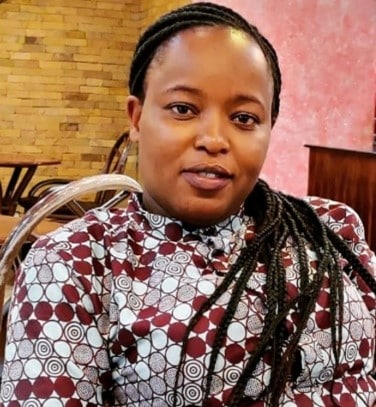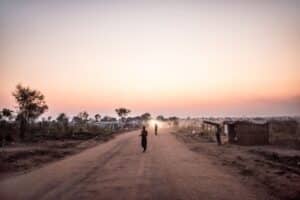Reflections on implementation of climate action on agriculture and food security at the Bonn Intersessional
By Lucy Esipila- Regional Executive Secretary of Caritas Africa

The Subsidiary Bodies (SB) of the United Nations Framework Convention on Climate Change (UNFCCC) are currently meeting for their 58th session in Bonn, Germany. This is an intersessional that provides spaces for side events, negotiations and meetings in preparation of the decisions that will be taken at Conference of the Parties (COP 28). Besides parties, diverse actors are represented here including: Civil society, youth groups, the business community and amongst others, faith-based entities such as Caritas.
Caritas Africa is particularly following negotiations around climate action on agriculture and food security. This is part of an outcome area in our 2024-2027 regional strategy to promote “financing, upscaling and adoption of agroecological principles in the transformation of food and agriculture on grassroots, trade and policy levels.”
The negotiations on Agriculture and Food Security started on June 5 2023, building on the outcomes from the decisions that were taken at COP 27. This informal session allowed interventions from parties and observers. The co-facilitators highlighted that they had received submissions from different entities and notably up to 100 topics on workshops were suggested. In this regard, Catholic actors in their March 2023 submission, had specifically asked for 4 workshops on: Agroecology, aquatic and blue foods, financing sustainable food systems and women’s rights in food systems.
The SB58 challenge is for negotiators to narrow down the workshop topics from 100 to 3 and to ensure that their focus is on implementation. Parties are also keen to develop a road map, building on the lessons learnt from the negotiations on Koronivia Joint Work on Agriculture. Notably, parties underscored the importance of taking paragraph 14 A-G of the decision taken at COP 27. Some of the highlights from this paragraph include: promoting a holistic approach to addressing matters relating to Agriculture and Food Security, enhancing research that factors in local and indigenous knowledge, setting up mechanisms for evaluation and, ensuring financing for these initiatives
Caritas Africa is hopeful that at the very least a workshop on Agroecology will be taken into consideration by the negotiators, in the view that it promotes environmentally friendly farming and its principles support sustainable and just food systems. This is our response to the call by Pope Francis to care for our common home. Caritas Africa is also desirous to see increased spaces for peripheral actors to engage in dialogue with government officials represented here in order to ensure that, the voices and experiences of those impacted by policy decisions are heard.
Caritas Africa is grateful to CAFOD for the grant that has enabled our participation in this event, our representation in international fora is an important vehicle to realise the aspirations of regionalisation, local leadership and fraternal cooperation in the Caritas Network.


